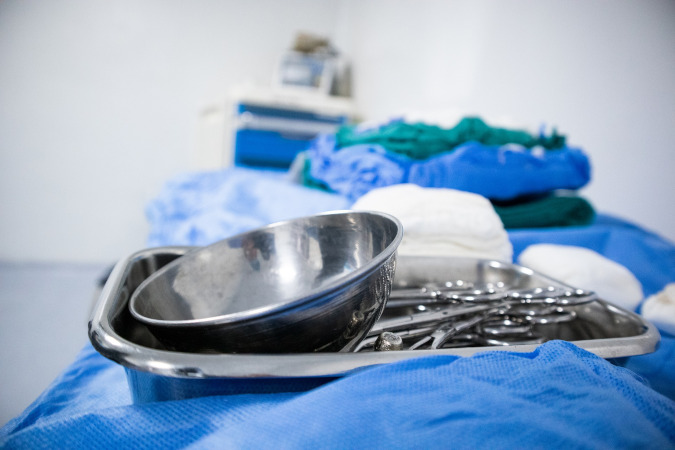
They operate various surgical equipment and machines such as instrument washers, sonic sinks, cart washers and steam autoclaves to clean, reprocess and sterilize supplies for reuse. They collect and sort soiled supplies and instruments from hospital departments, and by deliver sterile supplies to departments as required.
Sterile processors inventory, select and replenish supplies to medical and surgical carts on a regular basis, and monitor quota levels and changes in demand levels. They are also responsible for making appropriate substitutions when necessary and report problems regarding availability of instruments and supplies. They also communicate with operating room personnel to provide required instruments and surgical supplies. (Source)
Average Hourly
$25.70
Range Hourly
$12.27 – $25.70
Average Yearly
$50,115
Range Yearly
$23,930 – $50,115
Other assisting occupations in support of health services (3414)
Sterile processing worker
Sterile supply room attendant
Sterilization processing attendant
Central Supply Aide
Surgical Processor
Medical Device Reprocessing Technician
Sterile processing technicians require completion of secondary school and a six- to nine-month sterile processing college program.
Certification from IAHCSMM may be an asset.
Average hourly |
Range hourly |
Average yearly |
Range yearly |
$21.68 |
$11.19 - $29.71 |
$42,269 |
$21,814 - $57,925 |
High
Employment outlook is mostly good across provinces. More information is available here.
Without further education, advancement opportunities are limited.
0-1 year
Programs for Sterile processing technicians, SAIT, Alberta Business and Educational Services (ABES), Vancouver Community College etc.
Diligence, Extremely cautious, Comfortable in loud, noisy and stressful environment, Communication skills; ability to work independently; flexibility; interpersonal skills
Work environment may be noisy, busy and stressful. There are risks of exposure to corrosive chemicals, injury from sharp instruments, and infectious body contents/instruments. So they must observe safety precautions.
Technicians are on their feet most of their shift. May need to work nights, weekends and holiday shifts.
Sterile processors find employment in hospitals, community, medical clinics, doctor’s offices, surgical centers, dental offices. Both part-time and full-time positions are available.
To become competent for getting a job as a sterile processing technician one need to complete a certificate course from a college preferably that offers practicum.